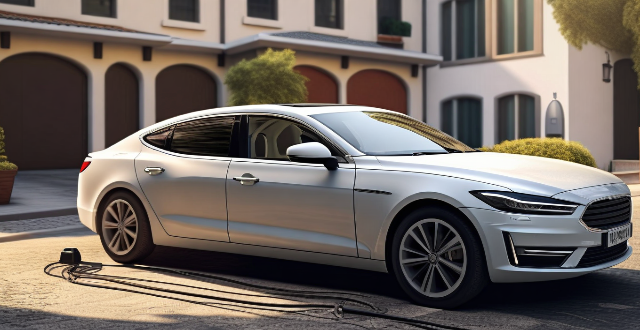The cost of cleaning a car's fuel system can vary depending on the type of vehicle, extent of buildup, and the cleaning method used. Factors affecting the cost include the complexity of the fuel system, amount of contaminants present, and the specific cleaning technique chosen. The average cost range is between $50 to $200, with different methods having varying price points. To reduce costs, using high-quality fuel, changing fuel filters regularly, and following maintenance schedules are recommended.

Cost of Cleaning a Car's Fuel System
Cleaning a car's fuel system is an essential maintenance task that helps to improve engine performance, reduce emissions, and extend the lifespan of the vehicle. The cost of cleaning a car's fuel system can vary depending on several factors, including the type of vehicle, the extent of the buildup, and the method used for cleaning. In this article, we will discuss the different aspects that contribute to the cost of cleaning a car's fuel system.
Factors Affecting the Cost
Type of Vehicle
The cost of cleaning a car's fuel system can vary significantly depending on the type of vehicle you own. Luxury cars and high-performance vehicles typically have more complex fuel systems, which may require specialized equipment and techniques for cleaning. As a result, the cost of cleaning these types of vehicles is usually higher than that of standard cars.
Extent of Buildup
The extent of buildup in your car's fuel system can also affect the cost of cleaning. If there is a significant amount of gunk, debris, or other contaminants in the system, it may take longer to clean and require more specialized tools and chemicals. This can increase the overall cost of the service.
Method Used for Cleaning
There are several methods available for cleaning a car's fuel system, including:
- Fuel Injection Cleaner Additives: These are liquid additives that are added to the fuel tank to help dissolve and remove contaminants from the fuel system. They are relatively inexpensive and easy to use, but they may not be as effective as other methods for removing heavy buildup.
- Fuel System Flush: This method involves using a specialized cleaning solution to flush out the entire fuel system, including the fuel lines, injectors, and fuel pump. It is more effective than additives but may be more expensive due to the additional labor and materials required.
- Fuel Injector Cleaning Machine: This method uses a machine specifically designed to clean fuel injectors. It is highly effective at removing contaminants from the injectors but may be more expensive than other methods due to the specialized equipment required.
Average Cost Range
The average cost of cleaning a car's fuel system can range from $50 to $200, depending on the factors mentioned above. Here is a breakdown of the typical costs associated with each method:
- Fuel Injection Cleaner Additives: $10-$50
- Fuel System Flush: $100-$200
- Fuel Injector Cleaning Machine: $150-$300
Tips for Reducing Costs
While regular maintenance is essential for keeping your car's fuel system clean and efficient, there are some tips you can follow to reduce the overall cost of cleaning:
- Use High-Quality Fuel: Using high-quality fuel can help prevent buildup in your fuel system and reduce the need for frequent cleanings.
- Change Your Fuel Filter Regularly: A clogged fuel filter can cause problems in your fuel system and lead to increased buildup. Changing your fuel filter regularly can help prevent these issues and reduce the need for costly cleaning services.
- Perform Regular Maintenance: Following your car's recommended maintenance schedule can help keep your fuel system clean and running smoothly, reducing the need for expensive cleaning procedures.
In conclusion, the cost of cleaning a car's fuel system depends on several factors, including the type of vehicle, the extent of buildup, and the method used for cleaning. By following proper maintenance practices and taking steps to prevent buildup, you can help reduce the overall cost of maintaining your car's fuel system.